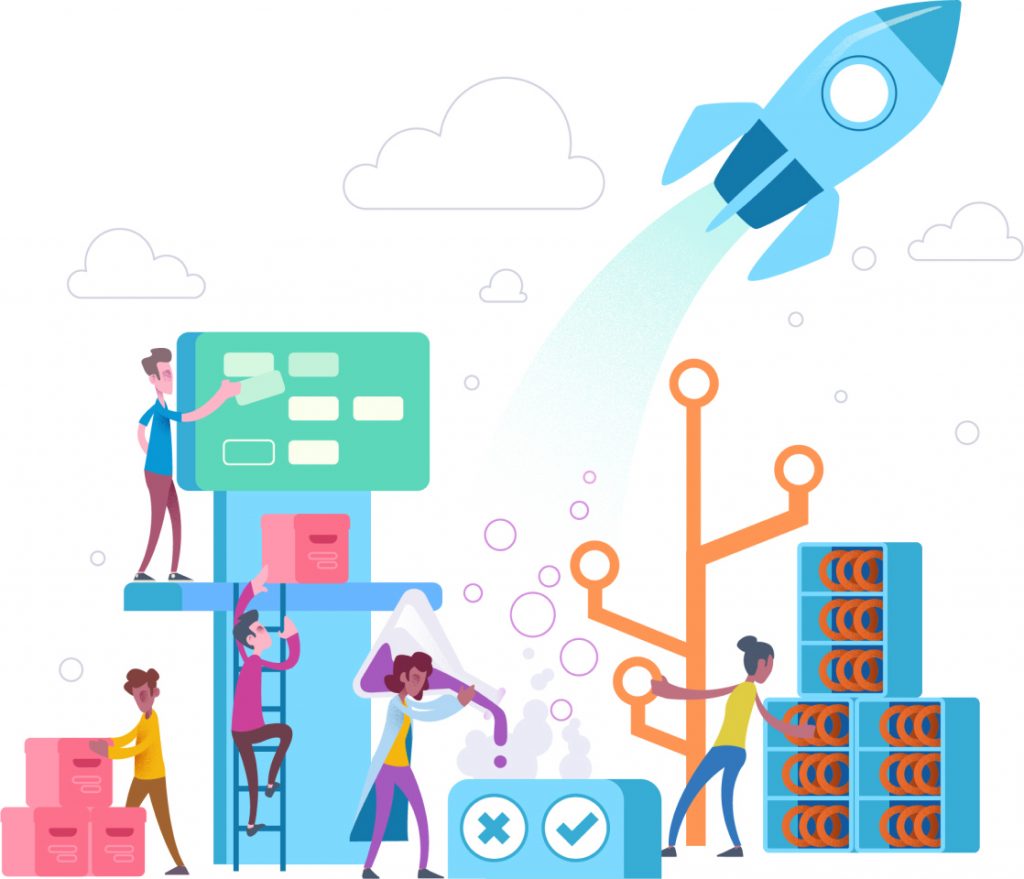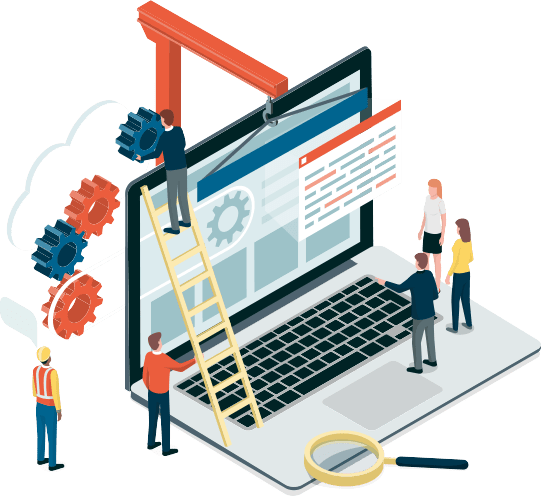DevOps is the most cost-efficient approach to delivering software and conducting cloud infrastructure management nowadays. However, multiple businesses that try to do DevOps themselves make some blunders and start seeking a trustworthy DevOps company able to help them fix the mess they are in. Here is what types of DevOps services you can get.
All DevOps services can be roughly split into two large categories — the ones related to software delivery and the ones related to infrastructure management. The first group of services includes:
- Design and implementation of the cloud infrastructure. Various cloud platforms provide PaaS solutions like Google App Engine, IBM Cloud Foundry or AWS CodePipeline to simplify app development. However, all the components of these services can be ordered separately and configured on your own, greatly reducing the costs.
- Implementation of CI/CD pipelines. Software delivery is a costly process and automating routine manual operations allows saving quite a ton of time and money. There are cloud platform-specific CI/CD solutions available like AWS CodeDeploy, as well as open-source alternatives like Jenkins, Travis CI, CircleCI, GitlabCI, etc. These tools allow creating powerful automated software pipelines for automating the process of software development, so every code commit becomes a mini-release ready to be delivered to production.
- Optimization of existing workflows and systems. Many companies have already implemented some kind of software delivery automation systems, even if these are not composed of DevOps tools and don’t form CI.CD pipelines. These systems can be optimized by replacing custom components with popular and highly-performant DevOps tools.

The second group of popular DevOps services includes various aspects of cloud infrastructure management operations:
- Infrastructure assessment and performance audit. Many businesses run helter-skelter infrastructure built to solve the challenges of yesterday, but clearly inadequate in terms of supporting long-term growth. This might cause performance bottlenecks and the inability to integrate the latest technology. Therefore, any business can benefit from periodic infrastructure performance audits. This can help remove performance issues, identify the room for growth and integrate the latest technology.
- Infrastructure design and optimization. Planning and building cloud infrastructure might seem a simple task, and everyone can create a simple pipeline within the frame of learning AWS or Google Cloud. However, when you start building infrastructure for serious business projects, you understand that the basics are not enough. To ensure security, scalability and repeatability of your infrastructure operations, they must be planned and implemented by professionals. Thus said, designing and implementing new loud infrastructure systems or optimizing the infrastructure the business already runs amounts to nearly half of all Managed DevOps services.
- Infrastructure backup and restoration automation. Daily backup operations for infrastructure that deals with customer financial transactions are essential for ensuring long-time business stability and continuity. Therefore, it is important to implement automated backup and restoration procedures to ensure the safety of your customer billing data.
- Monitoring and smart alerting. Keeping a hand on the pulse of your IT operations is needed at all times. System administrators and software engineers have to dedicate quite a large portion of the time to monitoring — and DevOps tools allow making this process much more efficient. Should any incident occur, a person on shift receives detailed information, which helps to greatly reduce the time to resolution of the issue.

These are the main types of DevOps services a business might require. Of course, all projects are different, so there might be a need to do something unusual — but skilled DevOps engineers can make any project a reality!


